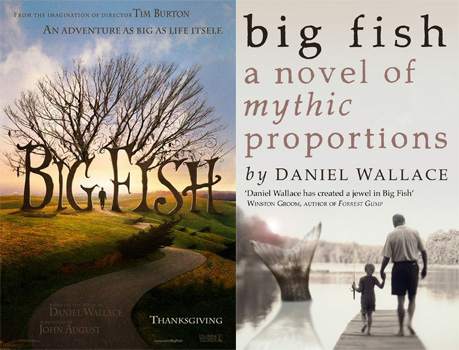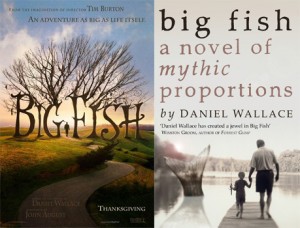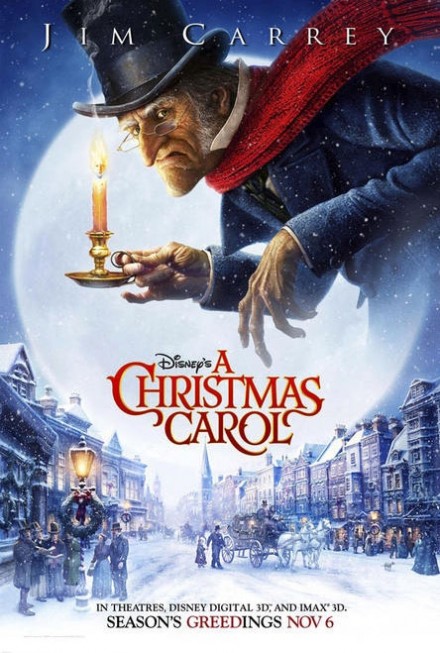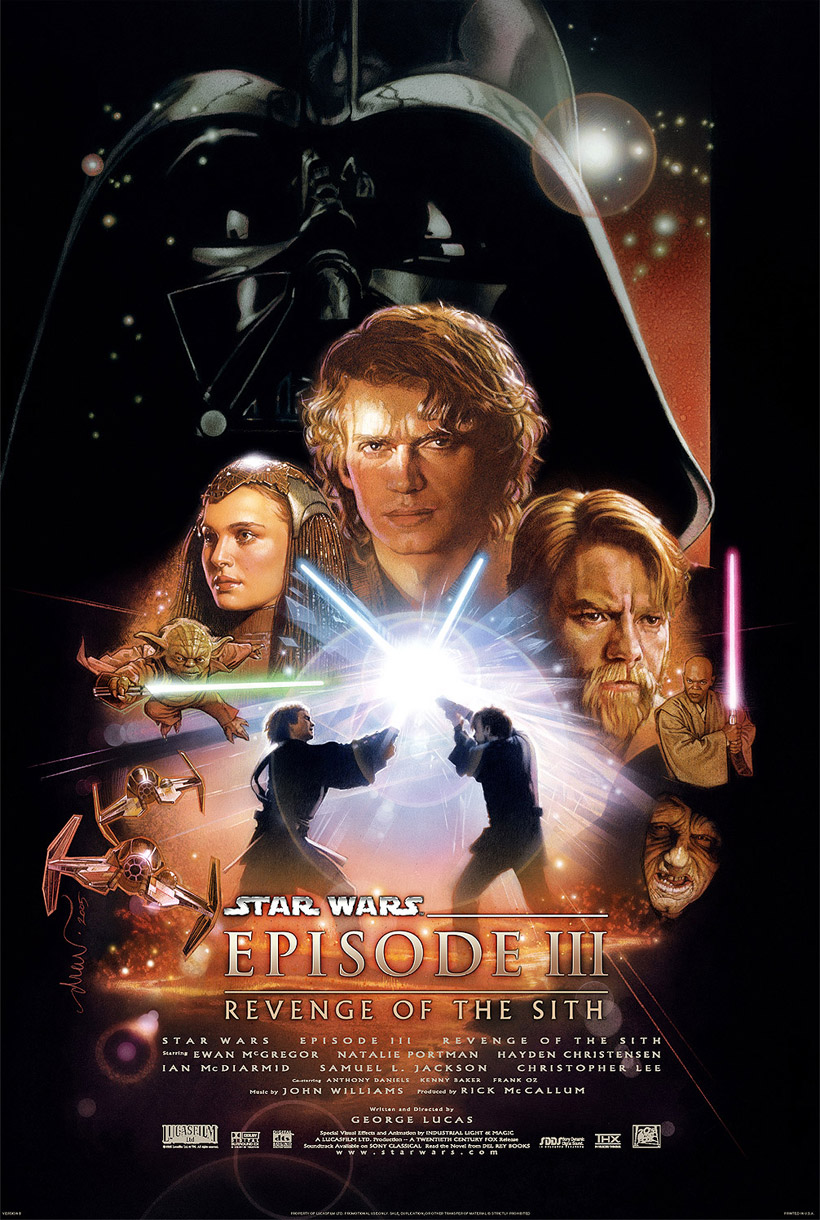
 This is probably the first in a series of articles on the times that a movie has either been as good as the book, acted as a great complement to the book, or bested the book. This is the result of being tired of hearing the misconception that “the book is always better.” The truth is, it’s not. Sometimes the movie far exceeds the book in execution of the same story.
This is probably the first in a series of articles on the times that a movie has either been as good as the book, acted as a great complement to the book, or bested the book. This is the result of being tired of hearing the misconception that “the book is always better.” The truth is, it’s not. Sometimes the movie far exceeds the book in execution of the same story.
It could be that the filmmaker had a better vision for the story. It could be that the filmmaker is simply a better storyteller. It could be that the book just lends itself to also be great on film.
When I do my comparative analysis, I’m going to let you know whether I’ve read the book that the film is based on, and whether I read it before or after seeing the film, as all of these things have an effect on the results.
Some of the books/movies I plan on covering include Big Fish, The Lord of the Rings, Harry Potter, The Shawshank Redemption, The Princess Bride, The Neverending Story and perhaps a few others.
We’ll start with the lesser known of the adaptations.
Big Fish
I saw this movie the day it was released in 2003. Needless to say, I totally loved it. It’s a great film with so many wonderful sets and characters that my imagination was very entertained. I mean, the movie has it all. From scary moments, to adventure, to love, to sacrifice, to mystery and hi-jinks. I could go on.
This is a movie that made me want to spend more time in the world that I discovered through the lens of Tim Burton.
I had heard that it was based on the book by Daniel Wallace, so I soon ordered it, and plunged myself into that world on the page. I found that there were many things that were different, which is not uncommon and could be expected. However, there was one major plot point that the movie had right, but the book had horrible wrong.
In the film, Edward Bloom is a fun-loving and dynamic character. He is completely selfless and wants what is best for everyone. Even when winning the girl of his dreams, he quips “she doesn’t belong to anyone” to her then-fiance. He helps a giant find a future in a circus, and he helps a small town to be revitalized. The character is also so very madly in love with his wife, that when temptation comes along, he turns it down.
That’s what the book gets wrong. In the book, Edward Bloom goes way out of character and has an affair. Sure, you could argue that makes him more human, with real flaws, but that’s not the point of the story. The point is that Edward Bloom has larger-than-life stories that make him a unique sort of superhero. The book, in one chapter, cheapens the character from someone that is infinitely more likable, making him into just another guy that happens to tell great stories.
A character like Edward Bloom, that tried so hard to win the heart of the girl of his dreams would not, ever, throw his love for her out for a night with another woman. He’s just not that guy.
This is one case where, when I finished reading the book, I went back and watched the movie again. I wanted my old perception of Edward Bloom back. I was able to separate the world of the book from the world of the film, thankfully, and Edward Bloom is once again the man he once was.
Thank you, Tim Burton and writer John August, for recognizing this and saving the movie from falling short of greatness. And thank you Danny Elfman for the amazingly varied and tour-de-force of a musical score that accentuates the story so well. The music written for this film is majestic and uplifting, and I consider it to be Danny Elfman’s magnum opus.
This is a case where the movie is definitely better than the book.
I’m not sure what I’ll write about next, but I will continue this series with another title to itself.
[poll id=”2″]




I know this is a 6 year old article, however, I still would like to put in my two cents. It is heavily implied im the movie through metaphor that Edward Bloom did cheat on his wife. Especially when he hangs his hat up and she says “you could leave it there.” I took that as he was cheating but he never stopped loving his wife. I can cite more examples but Im not sure if anyone is still monitoring this.
That doesn’t make sense. It’s when he’s leaving after fixing up a bunch of things. He’s picking up his hat, and she says that, and he says “I love my wife.” Again, I would ask, why would Edward Bloom ever EVER cheat on his wife? That would cheapen the character, cheapen the story, and make the entire sequence when he’s trying to learn about her, and win her heart, all for nothing. Why? Because there’s no resolution to that story, if it did happen. There’s no forgiveness or apology.
There’s not much doubt in the movie that they had an affair. When he asks her point blank her she basically says yes without being explicit. His “fixing her house” (with a white picket fence just like his real one) is them having an affair. He says “I love my wife” because it’s the breaking point in the affair — she says he can leave his hat meaning that he can leave his wife and family for her, but he makes clear that he loves his wife and she (HBC) is just an escape from reality for him, and he’s sorry she was misled into thinking it was more. I agree it seems to cheapen the character from what we want him to be (which is why the movie tones it down a bit), but he is (and is intended to be in the movie) a flawed but also fantastic human (the man pursued and stole an engaged woman, helped rob a bank and was never a very good father to his son, though his charm is so much of who he is and helps him turn these adventures/transgressions into wonderful tales that bend the truth in his favor).
I don’t believe that his building of the white picket fence is them having an affair. My read of the film comes having seen the movie close to 50 or 60 times, and I’m not kidding. I am glad that you see my point, that him having an affair would cheapen the character… not just a little bit either. He is a bad father to his son, this is true, which is enough of a flaw for me.
I think the strength in Tim Burton’s adaptation is in the complete downplaying of the affair, to the point where it is entirely plausible, and possible, that in the film version it simply doesn’t exist. I understand, however, that it could be viewed with the idea that it did happen. I just don’t understand how someone that is so in love with a woman that he works in a circus, for months, to learn only one small fact about her each month (she loves daffodils), and that fact gets him through the entire month each time, I don’t understand why that man, however flawed, would cheat on the woman he worked so hard to learn about.
I should ask Daniel Wallace. I have a friend whose wife went to school with his wife.